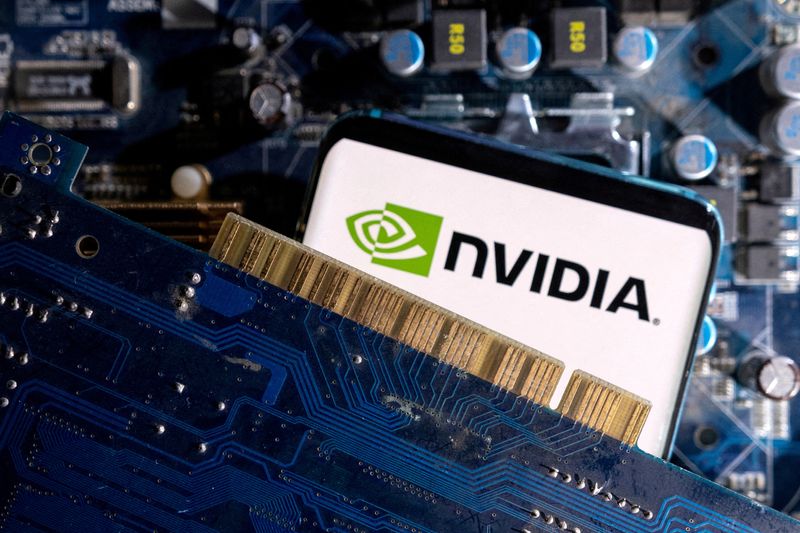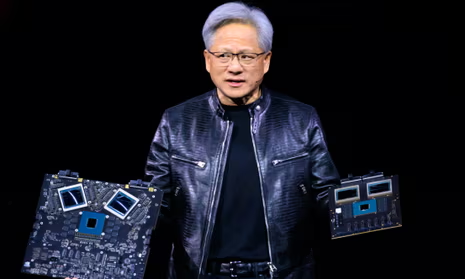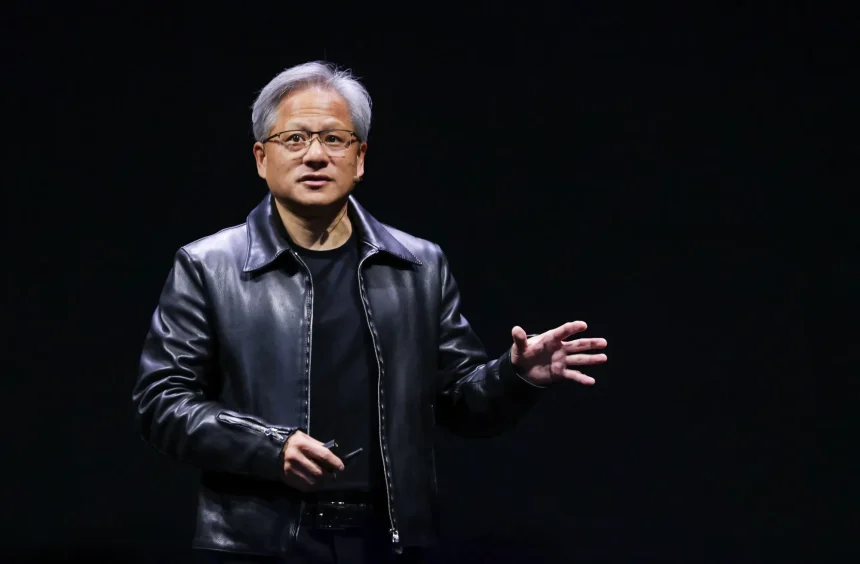The European Union is falling behind in the global race for artificial intelligence (AI) dominance, according to Nvidia CEO Jensen Huang. While the United States and China continue to invest heavily in AI innovation, the EU lags in both technological infrastructure and industry development. During a visit to Copenhagen on Wednesday, Huang called for Europe to speed up its efforts to stay competitive in the fast-evolving world of AI.
Nvidia, the world’s leading manufacturer of graphics processing units (GPUs), plays a pivotal role in powering AI advancements globally. Huang’s warning comes as Europe grapples with its AI strategy, even as the bloc passed the world’s first comprehensive rules to regulate AI in August. While these regulations mark a significant step toward governing AI responsibly, they may also be slowing the pace of innovation compared to other regions.
“There’s an awakening in every country realizing that data is a national resource,” Huang said, emphasizing the strategic importance of AI to national economies and future competitiveness. Despite the potential, Europe has relatively few AI-focused companies compared to the U.S. and China. France’s Mistral and Germany’s Aleph Alpha stand out, but they represent a small fraction of the AI landscape compared to the global giants leading the charge.
Huang’s remarks come at a time when Nvidia is expanding its global presence and capabilities. The company, known for creating GPUs that accelerate AI tasks, partnered with the Novo Nordisk Foundation and Denmark’s Export and Investment Fund to launch a new supercomputer, Gefion, in Copenhagen.

This cutting-edge supercomputer features 1,528 GPUs and is designed to tackle complex challenges in drug discovery, disease diagnosis, and life sciences. Denmark plans to use Gefion to drive advancements in healthcare, with the hope of significantly improving drug discovery and personalized treatments.
READ ALSO: North Korea Sends Thousands of Troops to Russia for Ukraine War
“The era of computer-aided drug discovery must be within this decade,” Huang said, reflecting on the future of AI’s role in medical research. “This will be the decade of digital biology.” His vision for AI-driven breakthroughs in healthcare underscores the urgent need for Europe to develop the infrastructure and expertise to compete on the global stage.
Nvidia’s GPUs have become integral to AI work worldwide, including for applications like OpenAI’s ChatGPT, which was built using thousands of Nvidia GPUs. As AI continues to evolve, the demand for Nvidia’s technology has surged, helping the company achieve a market value of $3.52 trillion, making it the second-largest listed U.S. company after Apple.
Despite its technological prowess, Europe has been slow to capitalize on AI’s full potential. The EU’s regulatory framework, while crucial for ethical AI development, may also be contributing to the region’s sluggish progress in building a robust AI ecosystem.
With only a handful of AI-focused companies in the region, Europe risks falling further behind its global competitors if it does not accelerate investment in AI research, infrastructure, and talent.
Meanwhile, the U.S. and China continue to dominate the AI race. The U.S. benefits from a thriving tech sector with companies like Nvidia, Google, and Microsoft leading AI research and application.
China, with its state-backed support for AI, has made significant strides in AI development, particularly in areas like facial recognition, natural language processing, and autonomous systems. In contrast, Europe’s progress has been hindered by fragmented AI policies and underinvestment in critical AI technologies.
To catch up, European nations need to recognize the value of data as a national asset and invest in the necessary infrastructure to harness AI’s full potential. This includes not only funding for research and development but also public-private partnerships that can drive innovation across industries.
The launch of Gefion in Denmark is a step in the right direction, showing how collaboration between governments, foundations, and private companies can spur technological advancement. By leveraging supercomputing power, Europe can make significant strides in fields like healthcare, where AI has the potential to revolutionize drug discovery and treatment.
READ ALSO: Gold Prices Reach Record Highs Amid Pre-Election Market Volatility and Dollar Strength

However, much more needs to be done to close the gap with the U.S. and China. As Nvidia’s CEO highlighted, the future belongs to those who can harness the power of data and AI. For Europe, the time to act is now, or risk being left behind in the next wave of global innovation.
With AI poised to reshape industries from healthcare to finance, agriculture to manufacturing, Europe’s ability to compete will depend on how quickly it can adapt to the new digital economy. As the world moves into the era of digital biology and AI-driven breakthroughs, Europe’s success will hinge on its willingness to invest in cutting-edge technologies and foster a dynamic environment for AI research and development.
In conclusion, while Europe has made strides in regulating AI, it must now focus on accelerating its AI capabilities to keep pace with the U.S. and China. The launch of Nvidia’s supercomputer in Denmark shows what’s possible when the right investments are made, but Europe needs more such initiatives to become a global leader in AI. With the future of entire industries at stake, Europe can no longer afford to be a passive player in the AI revolution.

